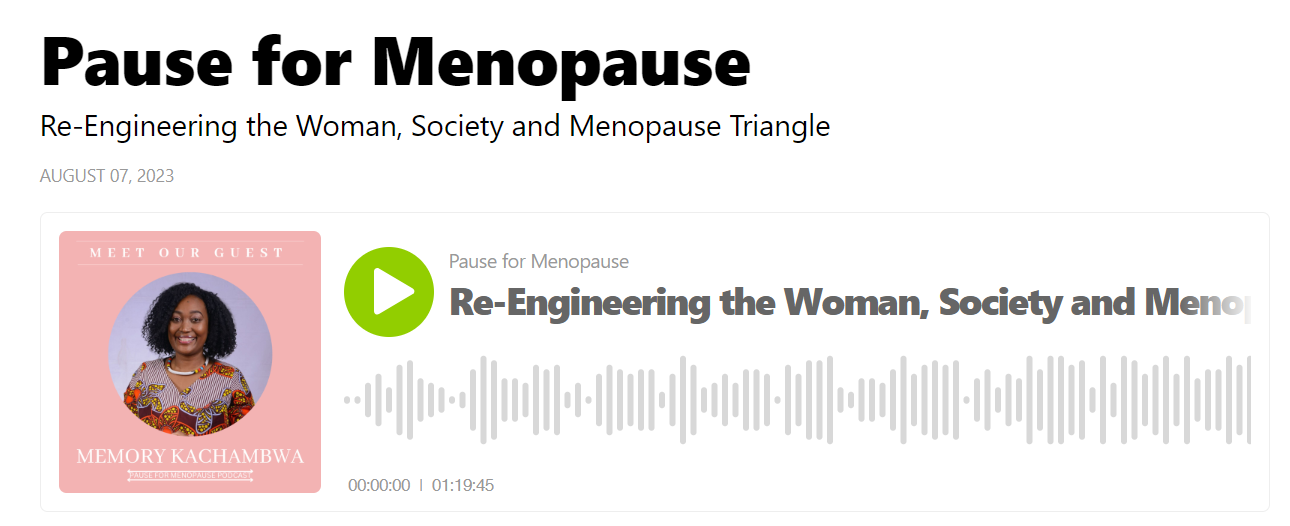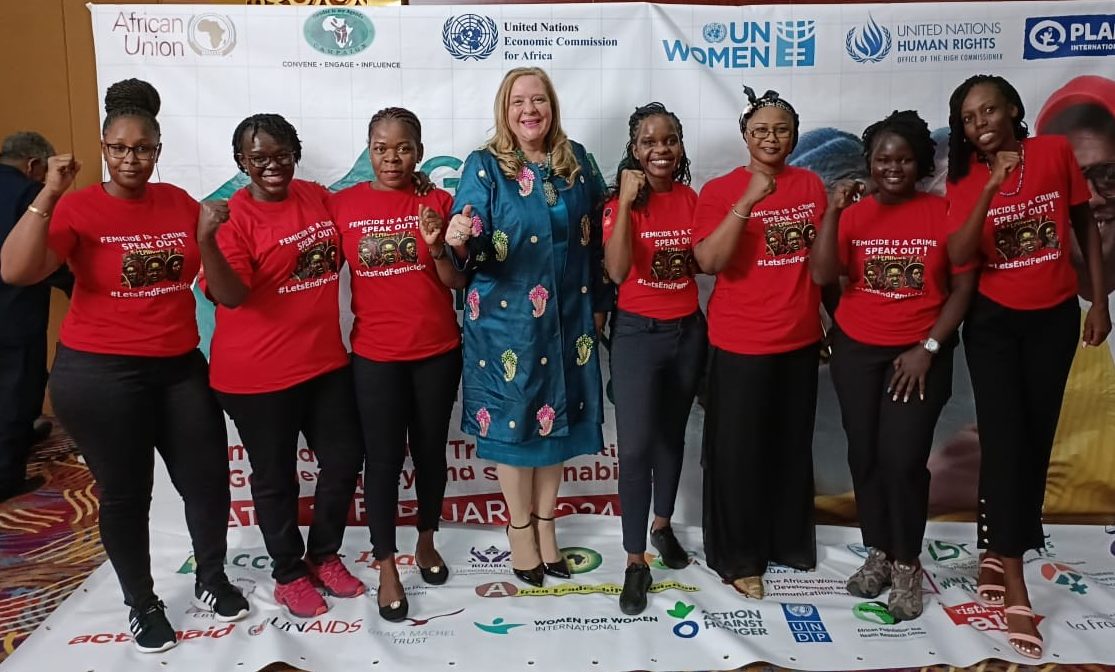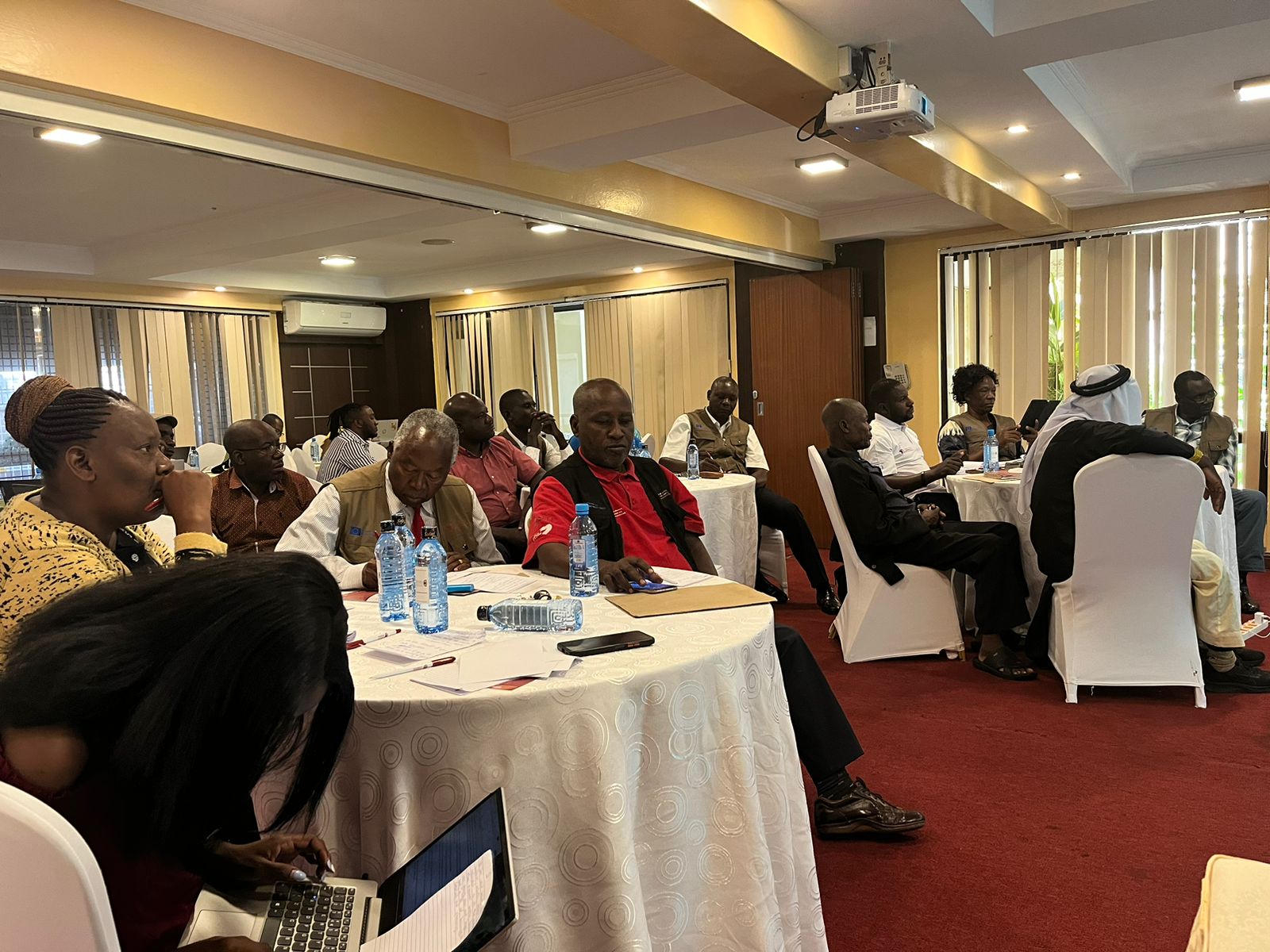
Re-engineering the woman, society and menopause triangle
Blog Post by Sue Mbaya, Host of Pause for Menopause Podcast
13 August 2023
For centuries, women’s reproductive health and bodily changes have been swept under the rug, leading to a glaring absence of dialogue surrounding menopause. The silence surrounding this natural phase of a woman’s life has allowed myths, misconceptions, and stereotypes to flourish – many of which are harmful to women. Understanding menopause requires us to step back from the menopause transition itself the fundamental issues which shape societal attitudes towards women in general… For example, we often draw parallels between the horror and shame associated with menstruation and the horror, shame and blame associated with menopause. So, clearly, the issues are not unique to menopause, the issue is about the way in which societies fundamentally view women. It is the persistence of patriarchal views which devalue women, continually tying their worth to their appearance and their reproductive status – even in this day and age! It is this dominant patriarchal view of women which has created fertile ground for the emergence of the menopause stigma. African feminists and activists have a crucial role to play in challenging these dominant views and dismantling the stigma surrounding menopause.
Empowering women in the workplace
The workplace often becomes a battleground for women experiencing menopause, as they confront physical symptoms, emotional and cognitive fluctuations, and societal expectations, often in a non-supportive environment. Globally, women have begun to demand workplace policies that acknowledge and accommodate the unique needs of women going through menopause. By destigmatizing menopause in the workplace, we can create an environment which acknowledges, understands and empowers women – an environment which fosters empathy, and supports women, ensuring that women continue to thrive professionally during this transformative phase of life. This menopause transition is a really interesting time. Women want to call attention to the ignored impacts of menopause because menopause can really impact their contribution. At the same time as powerful women, we don’t want to appear weak and vulnerable… we are concerned about fuelling the counternarrative which says we are past it or that we can no longer deliver. My response to this is why not!? Why can’t women be both vulnerable AND powerful at the same time? There is absolutely nothing wrong with workplaces being asked to make short-term considerations (usually in the form of small changes), to facilitate the continued contribution of women going through menopause. It actually makes good business sense.
Cultivating community support
Menopause affects not only the woman experiencing it but also her entire community. For African feminists and activists working to challenge traditional notions of women’s worth, it is important to challenge the notion that menopause signifies the end of productivity or usefulness. By promoting community support, we can create safe spaces for women to share their experiences, seek guidance, and unlock solidarity. Through education and awareness campaigns, currently missing, we can empower communities to reject the stigma surrounding menopause and embrace the wisdom and strength that women bring to society during that phase of their lives. Communities often have knowledge and practices which can be leveraged. For instance in many communities aging is celebrated among men. Activists can use this cultural construct to promote a more respectful attitude towards women experiencing menopause.
Reformation through activism
African feminists and activists serve as catalysts for change, inspiring dialogue, dismantling stereotypes, and challenging patriarchal norms. By engaging in intersectional advocacy, feminist activists can erode and eradicate the multifaceted dimensions of menopause stigma, including its intersections with gender, race, class, and culture. Critical to this effort is the availing of information, support, and resources to women at all levels, to navigate menopause with dignity and ease. The journey towards destigmatizing menopause in African societies is in its formative stages. Its establishment requires the focus and brave engagement by feminists and activists. We have a range of tools available to us. By challenging societal norms, advocating for policy changes, and fostering supportive communities, we can create an environment where menopause is normalized. The Pause for Menopause Podcast is making its contribution to this effort. The podcast employs the power of storytelling, to amplify the voices of African women, ensuring their experiences with menopause are acknowledged and honoured. However, much more is needed, research to provide a more robust evidence base for advocacy efforts; champions to spark brave conversations; trailblazing policymakers willing to collaborate with activists to unlock the political will required for recognition of menopause, evidenced by policy decision and allocation of resources for research, training and commodities relating to menopause. The magnitude of the task is evident. However, it is not insurmountable. Together, we can shatter the silence and forge a path towards a future where menopause is destigmatized, and women are empowered to embrace this new chapter of their lives with grace and confidence.
Listen to Sue Mbaya as she discusses Re-Engineering the Woman, Society and Menopause Triangle with Memory Kachambwa on Pause for Menopause Podcast: https://rb.gy/p1cqr
#SRHRDialogues
Related Tags
Related Posts
From Addis to Action: GIMAC Ignites a Feminist Future
Across the vibrant buzz of education sweeping across the African Union space in Addis, a revolution stirs –
Learn MoreMale Allies Call for the Dismantling of Patriarchal Norms & Practices
In Africa, patriarchal attitudes and behaviours continue to be normalized and reinforced in different social and cultural spheres.
Learn More







